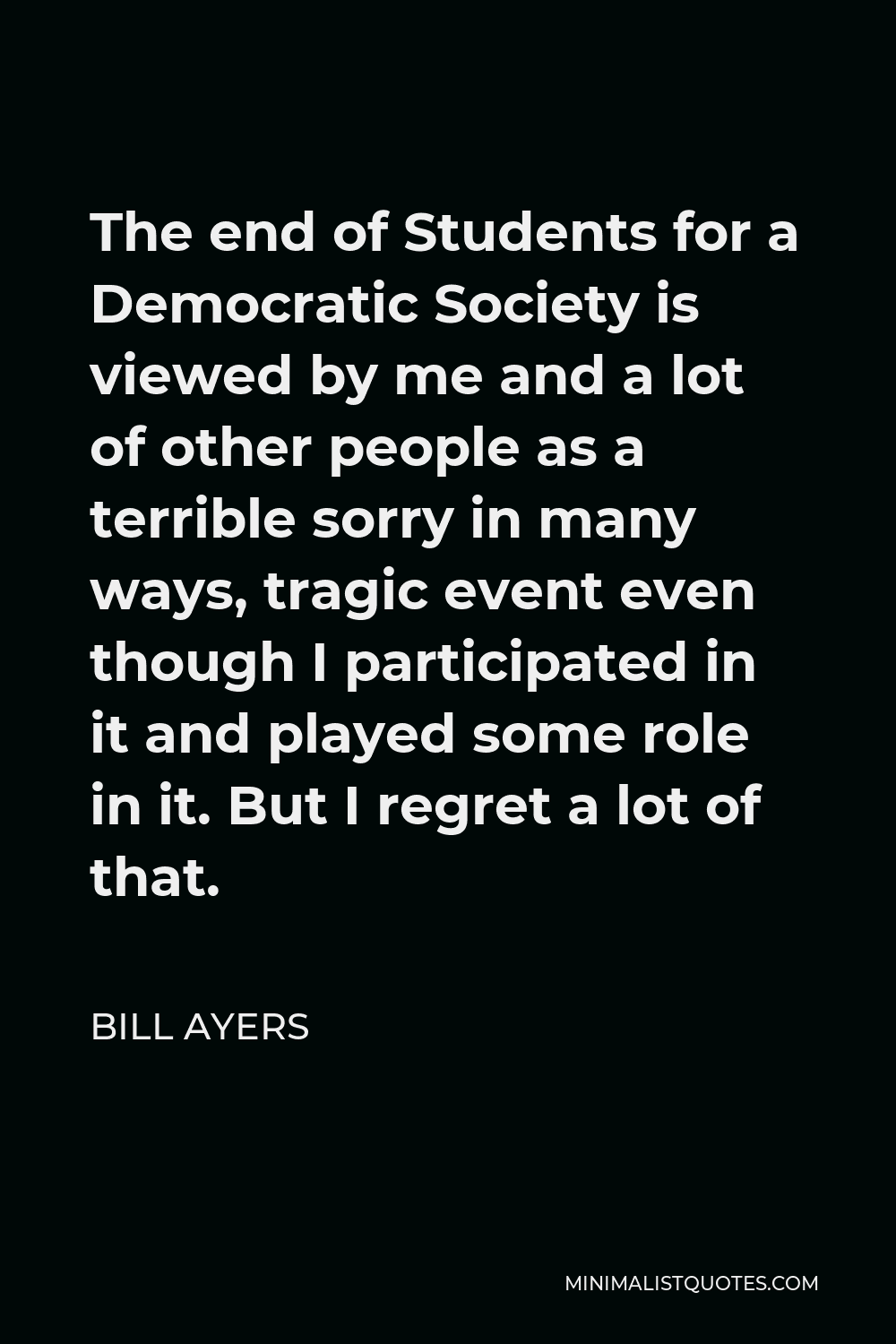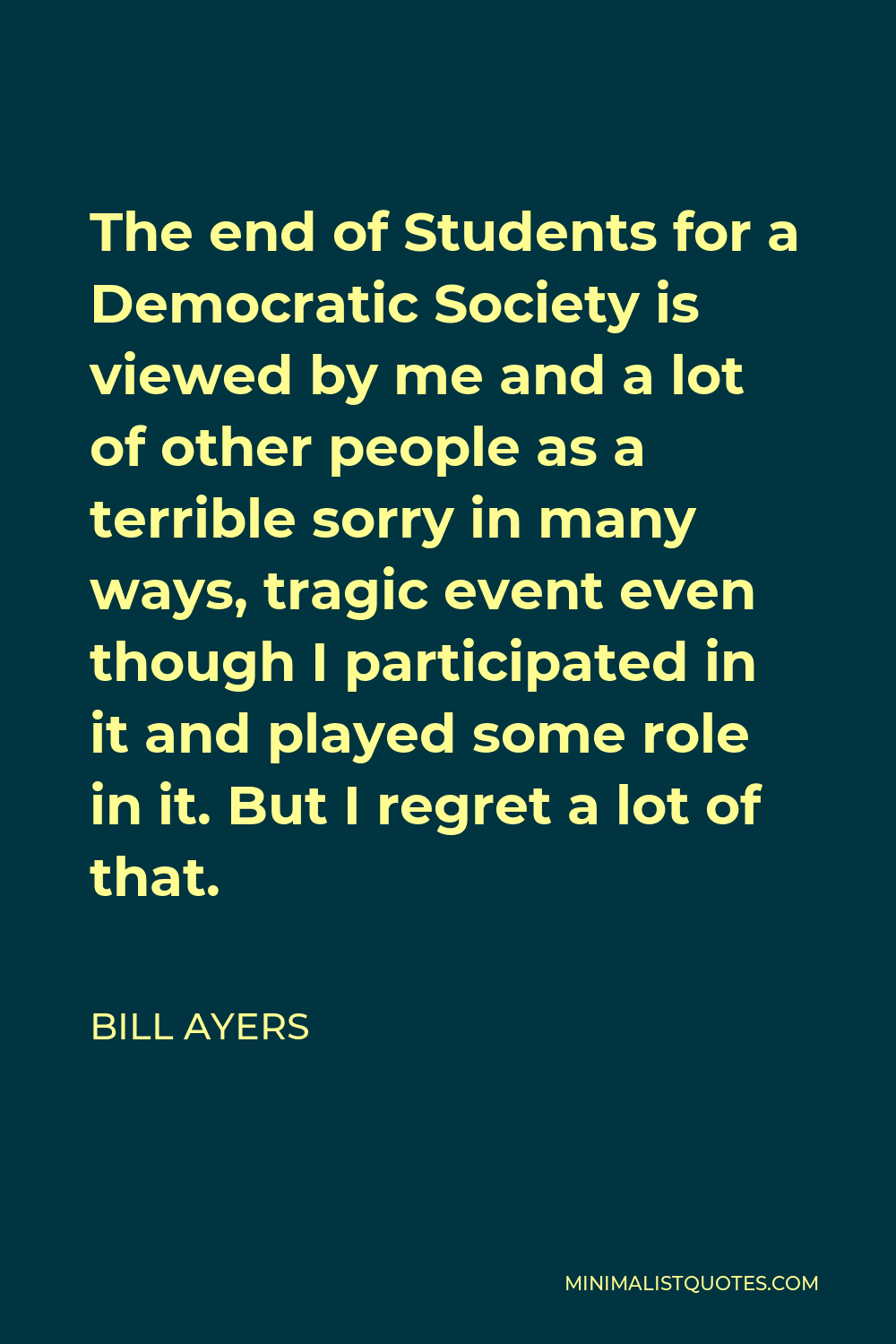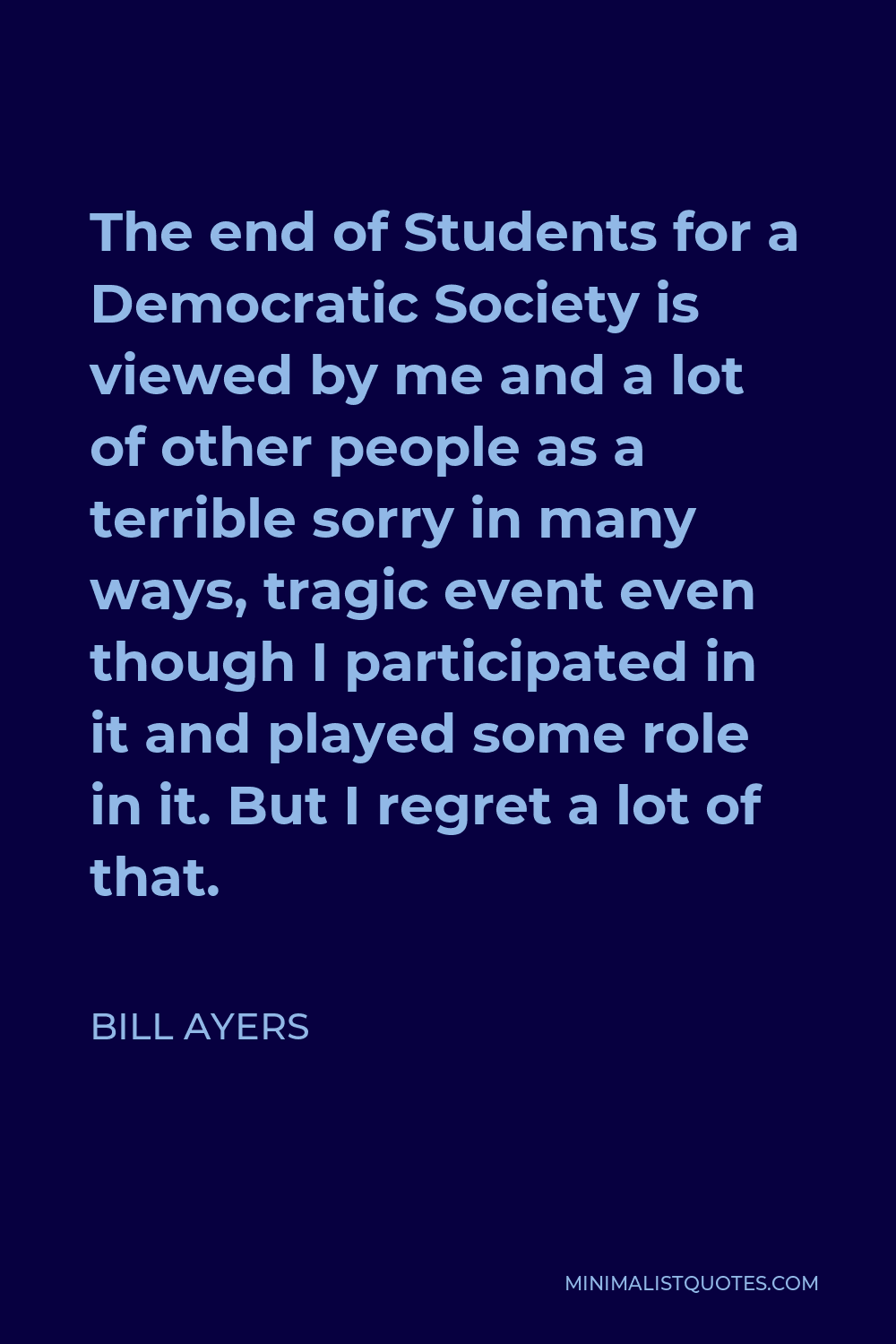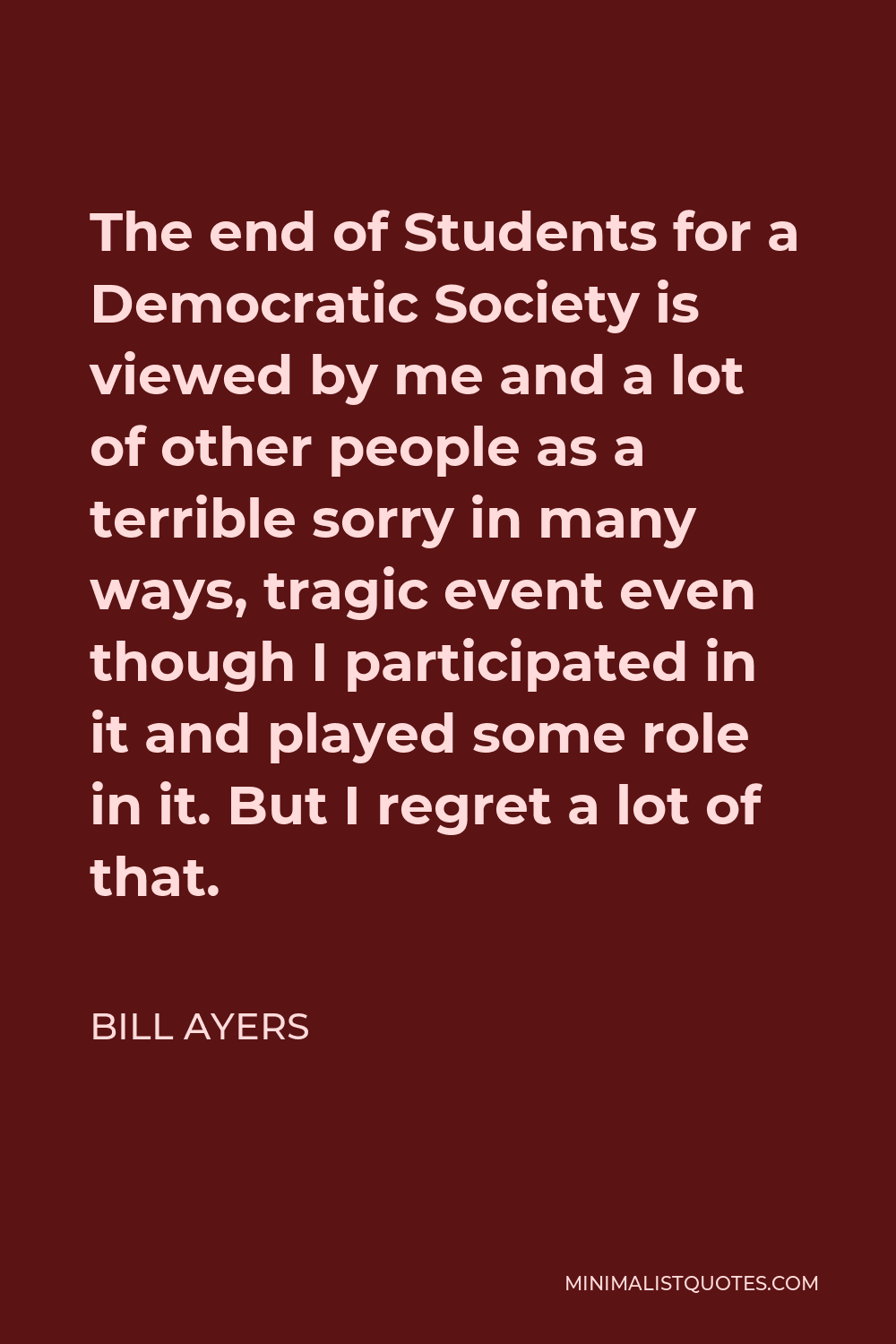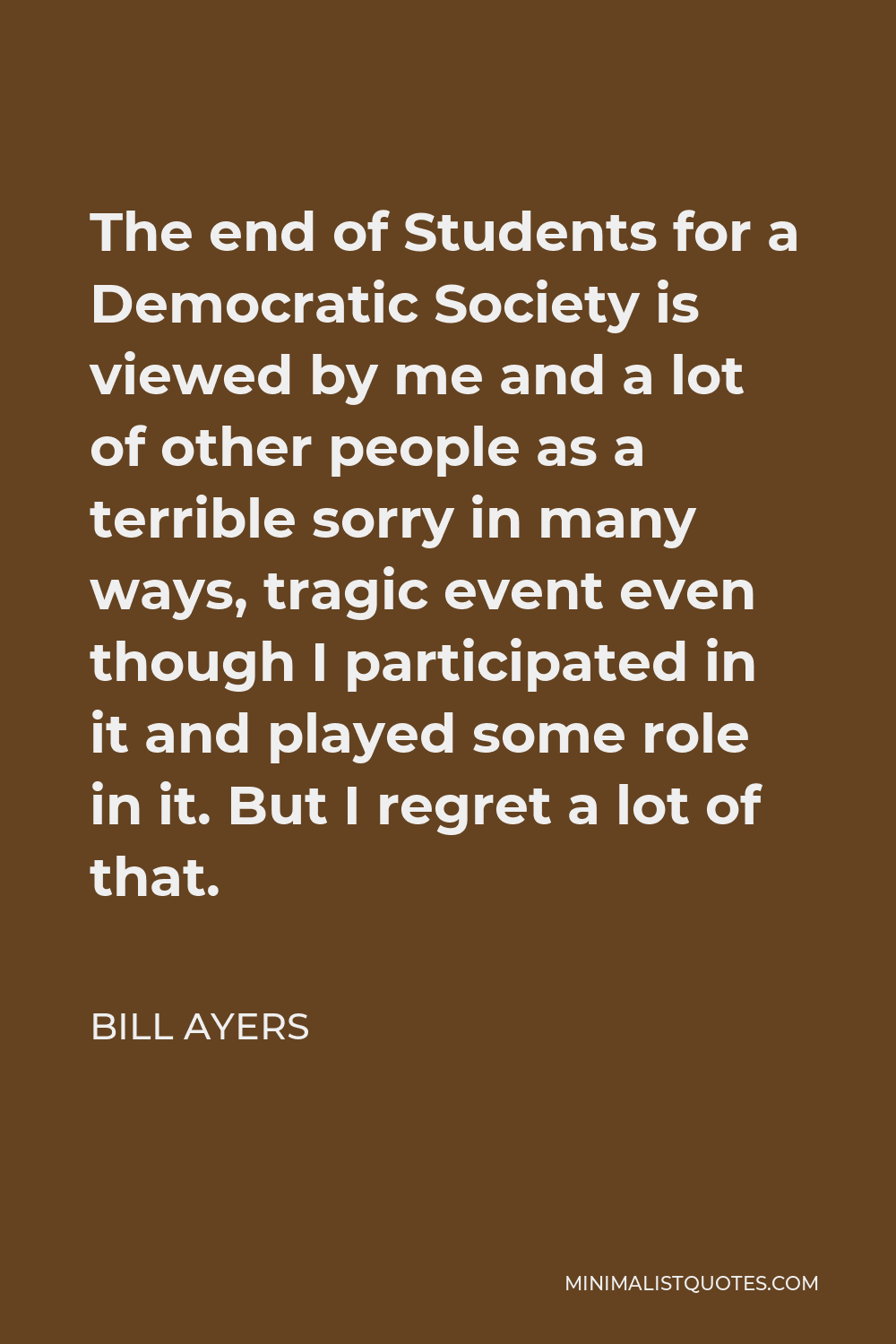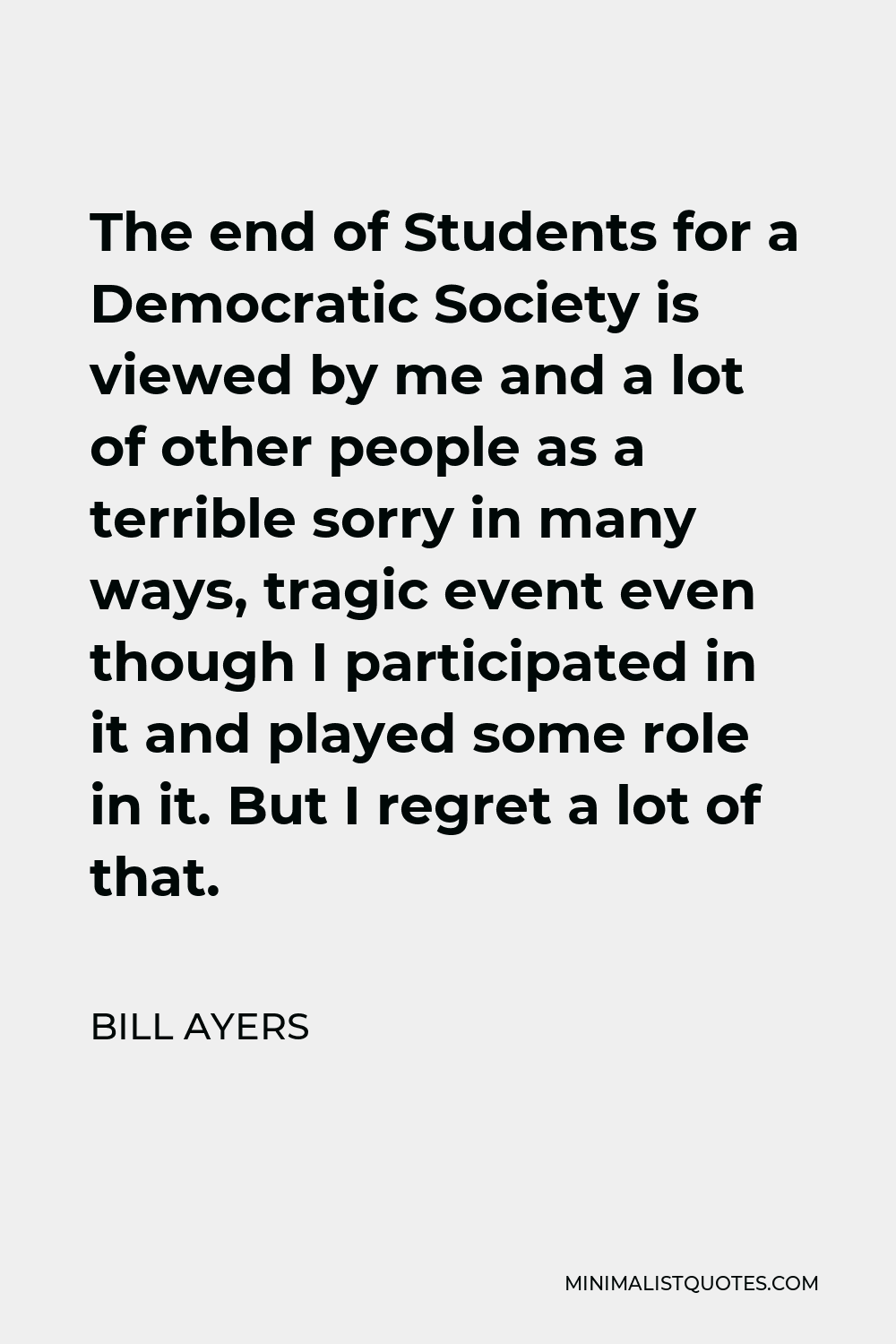The truth is that the antiwar movement was powered by the working class. The students were the ones that got the media and so forth, but it was the soldiers on the ground who really energized the antiwar movement in the late Sixties.
BILL AYERSThe end of Students for a Democratic Society is viewed by me and a lot of other people as a terrible sorry in many ways, tragic event even though I participated in it and played some role in it. But I regret a lot of that.
More Bill Ayers Quotes
-





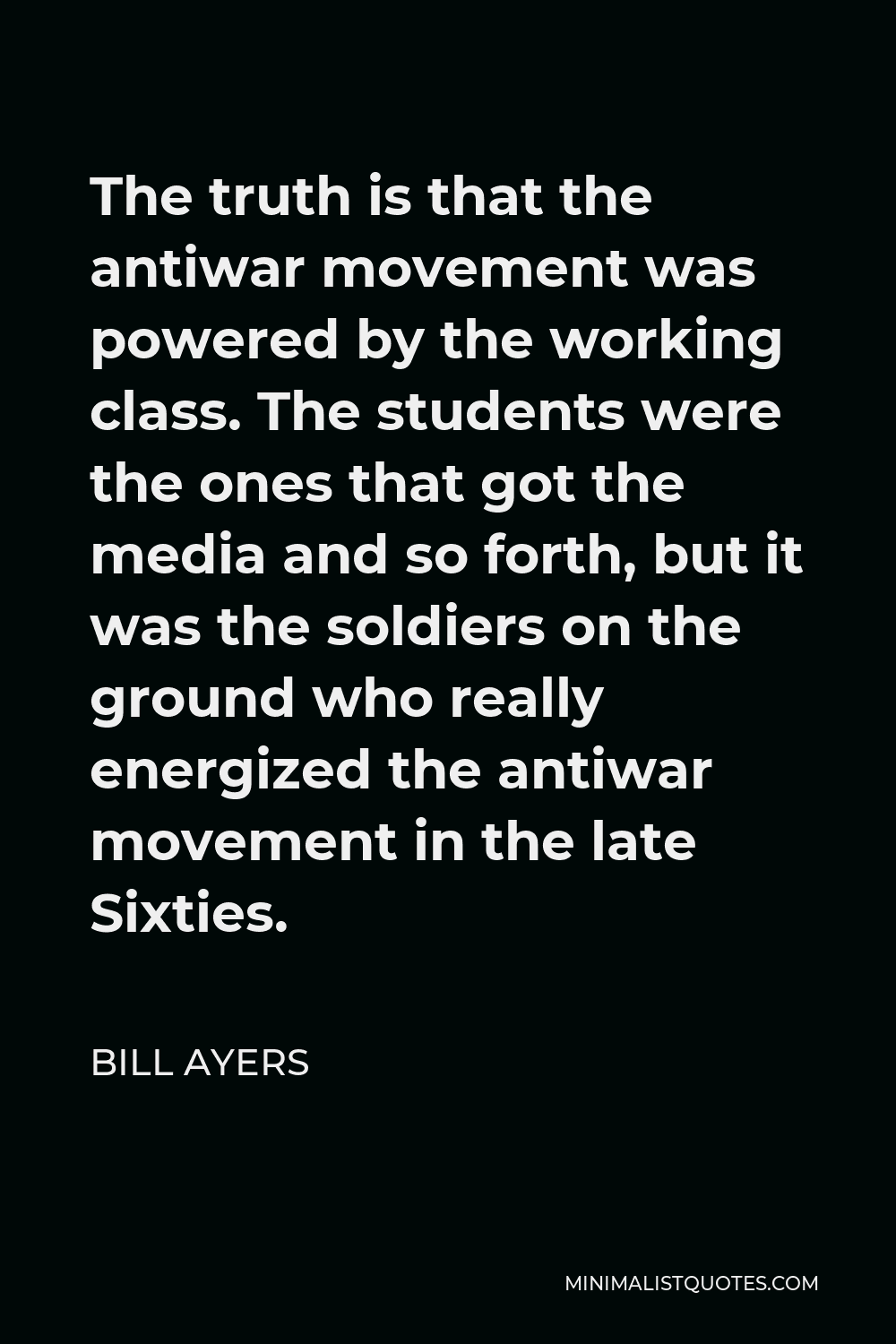
-





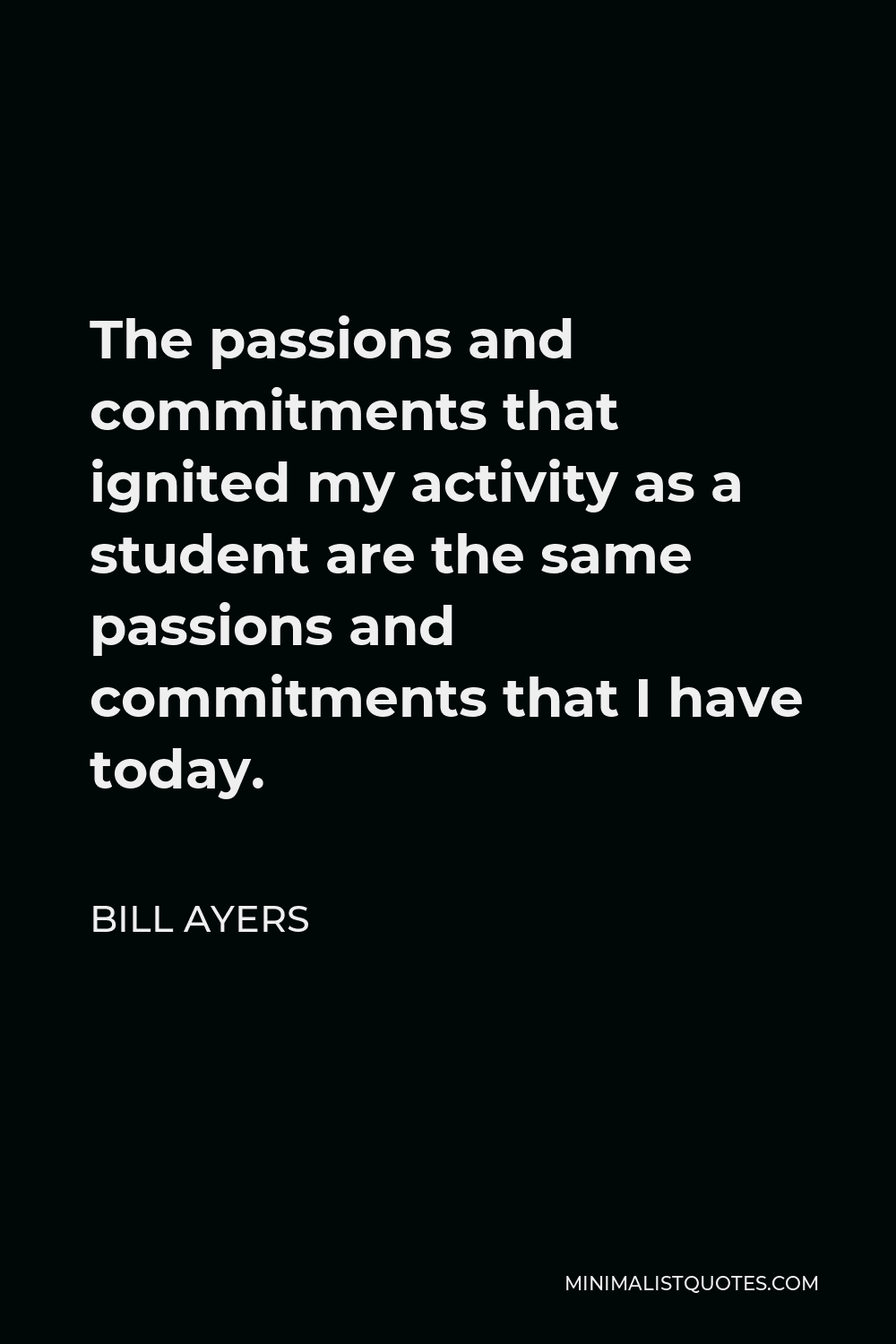
The passions and commitments that ignited my activity as a student are the same passions and commitments that I have today.
BILL AYERS -





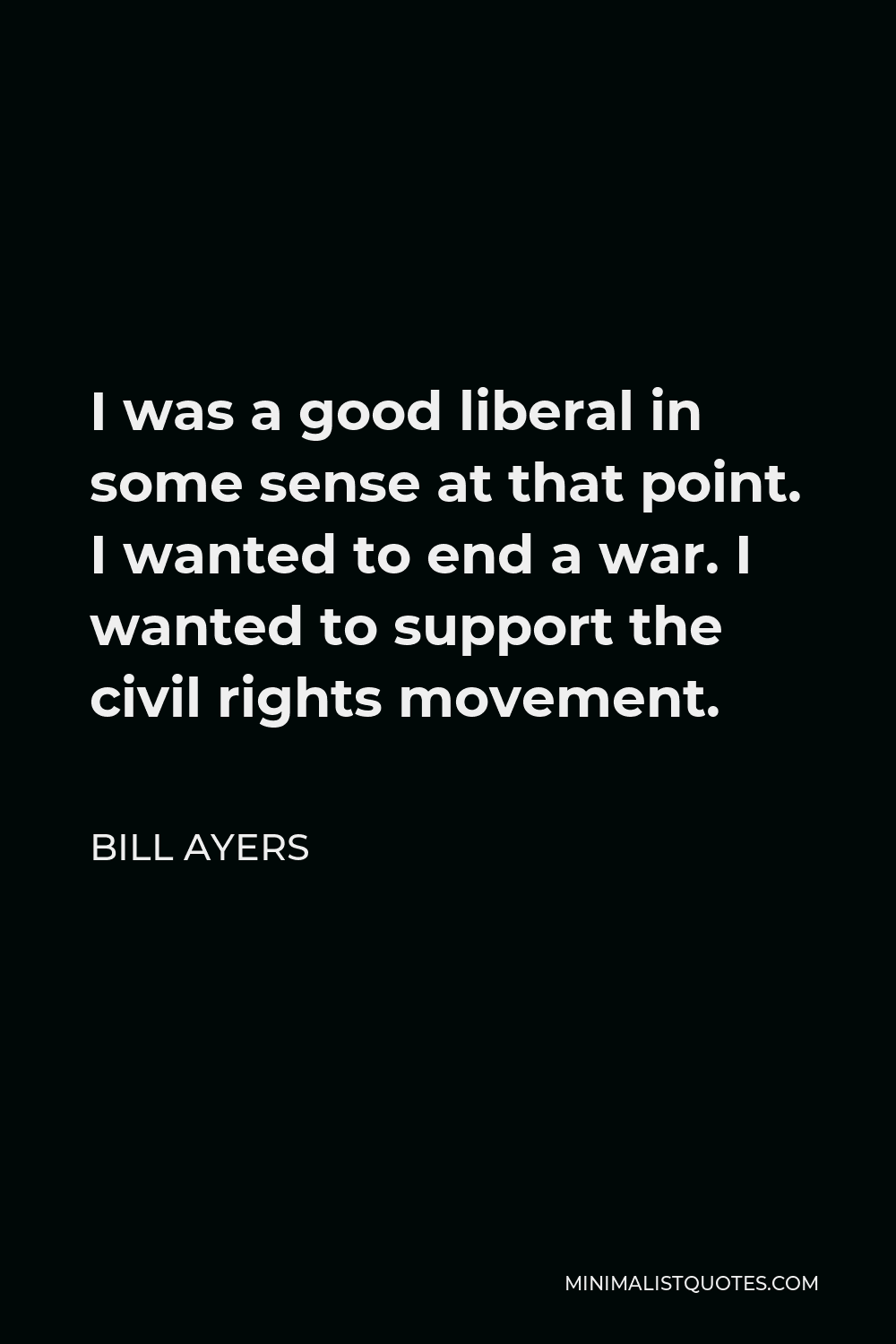
I was a good liberal in some sense at that point. I wanted to end a war. I wanted to support the civil rights movement.
BILL AYERS -





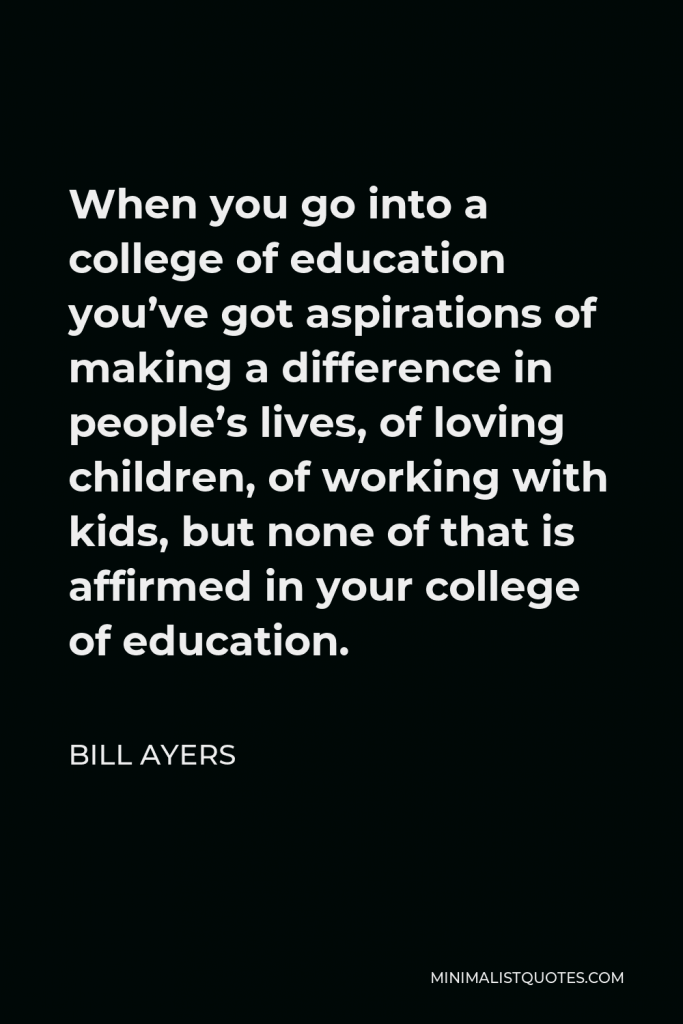

When you go into a college of education you’ve got aspirations of making a difference in people’s lives, of loving children, of working with kids, but none of that is affirmed in your college of education.
BILL AYERS -





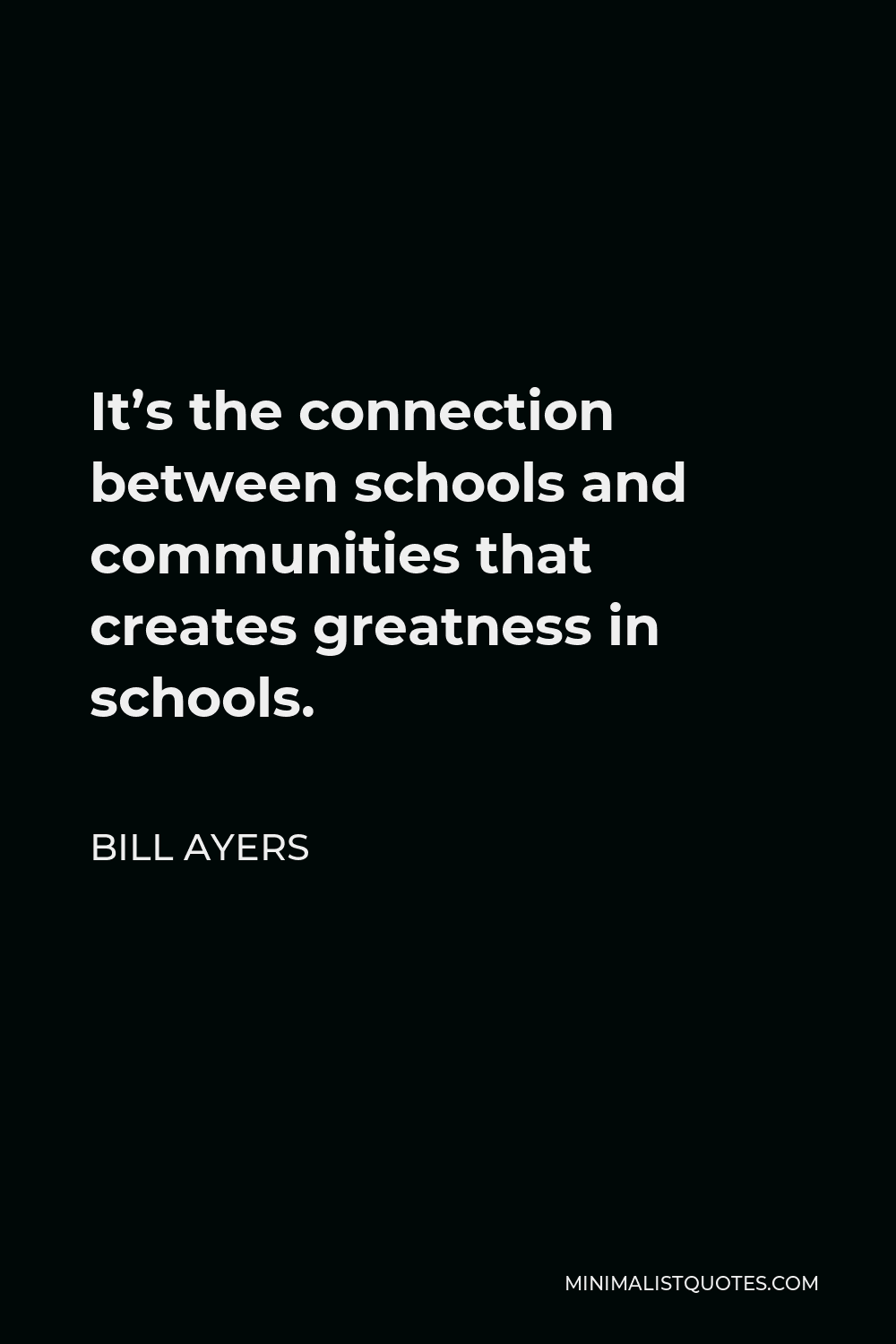
It’s the connection between schools and communities that creates greatness in schools.
BILL AYERS -





![Bill Ayers Quote - Certainly my parents were Dr. [Benjamin] Spock-driven parents. So they were tolerant.](https://minimalistquotes.com/images/certainly-my-parents-were-dr-benjamin-spock-driven.jpg)
Certainly my parents were Dr. [Benjamin] Spock-driven parents. So they were tolerant.
BILL AYERS -





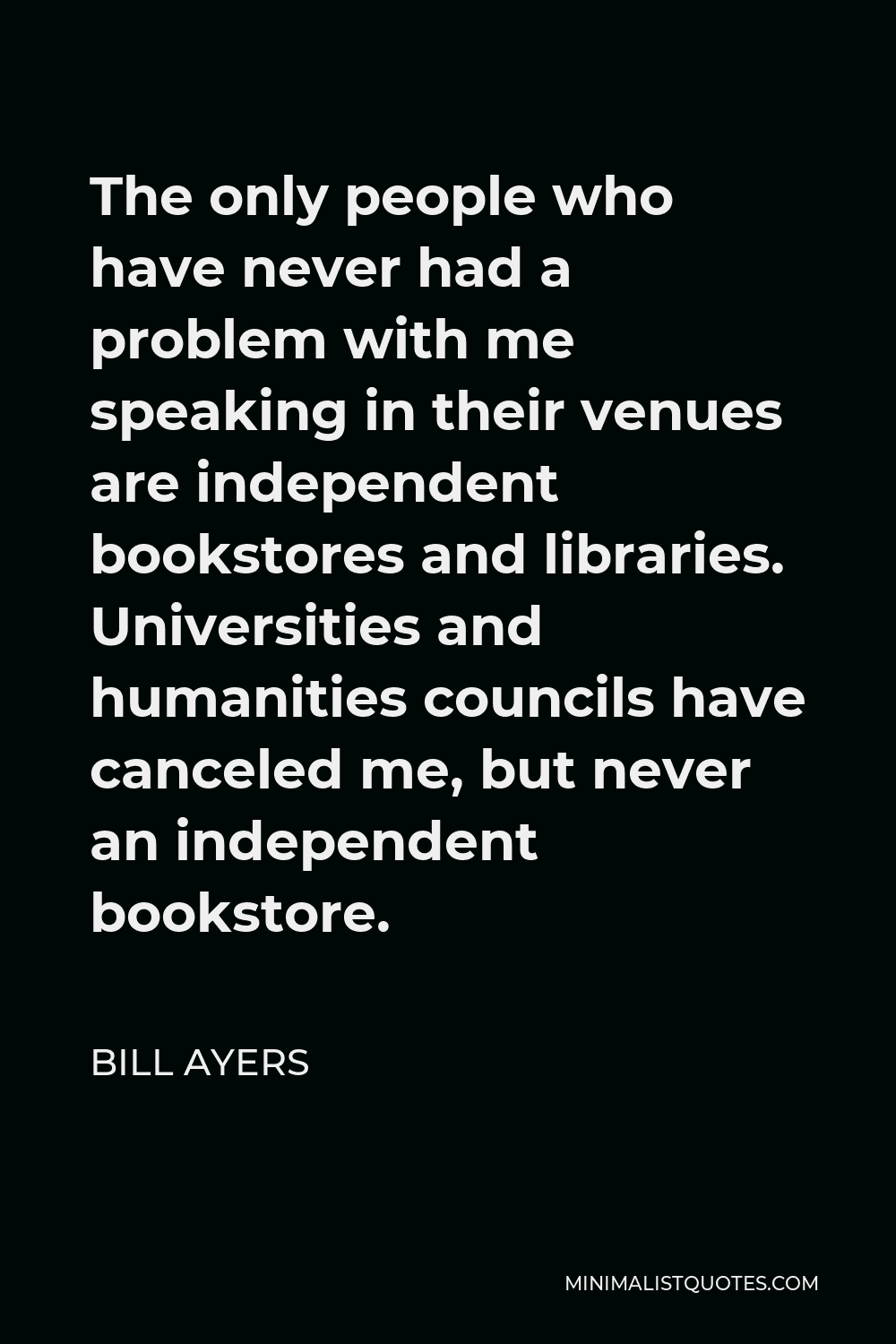
The only people who have never had a problem with me speaking in their venues are independent bookstores and libraries. Universities and humanities councils have canceled me, but never an independent bookstore.
BILL AYERS -





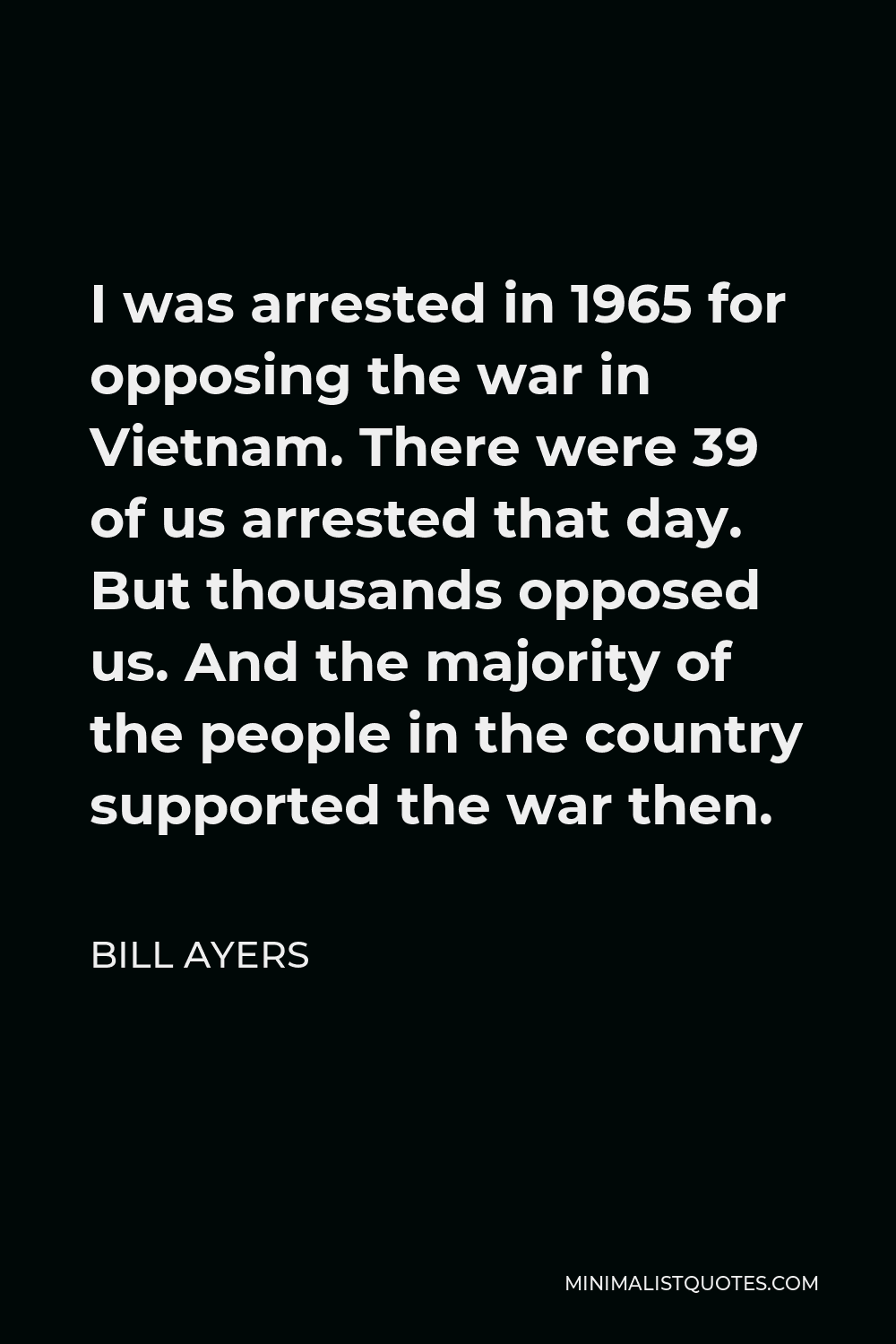
I was arrested in 1965 for opposing the war in Vietnam. There were 39 of us arrested that day. But thousands opposed us. And the majority of the people in the country supported the war then.
BILL AYERS -





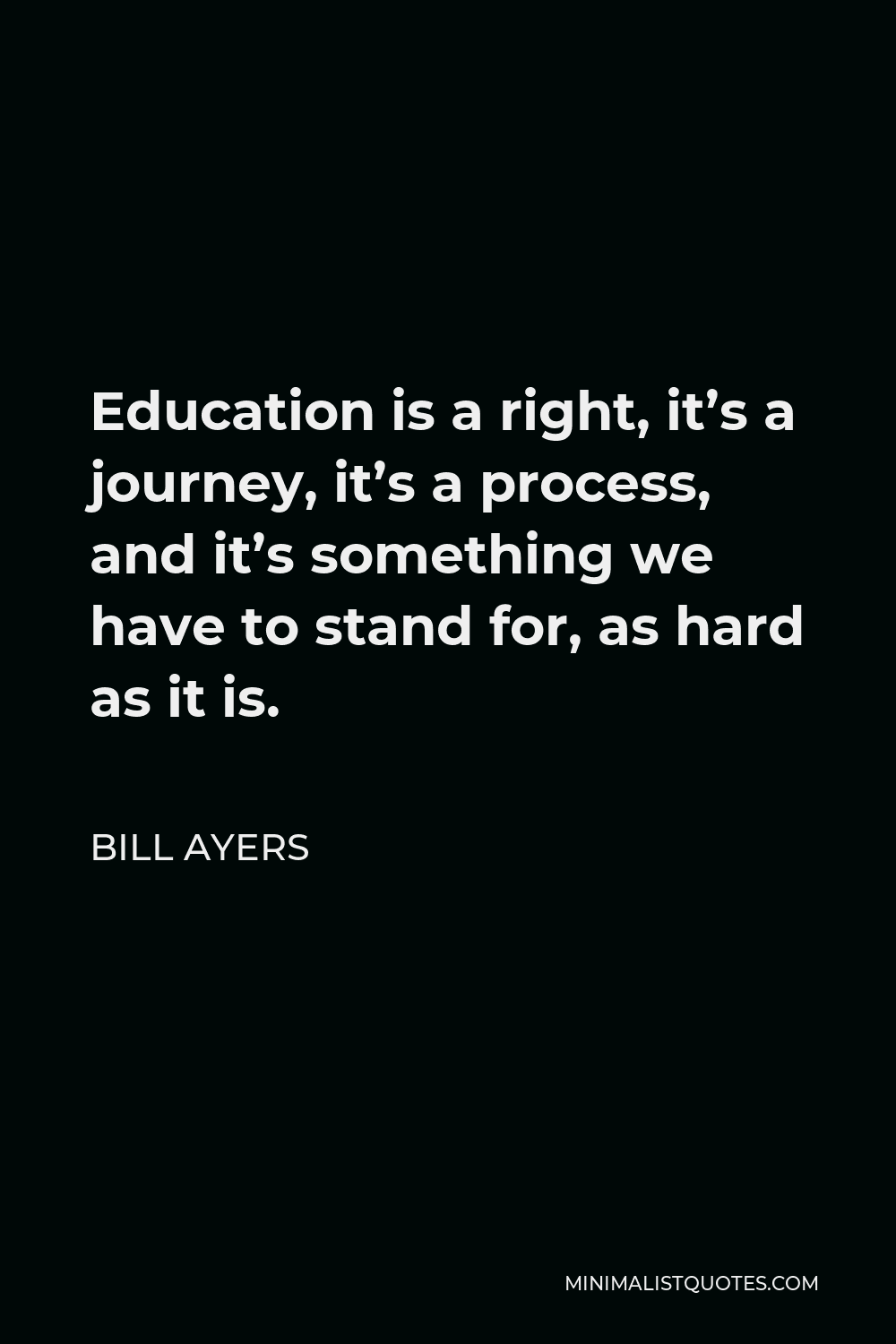
Education is a right, it’s a journey, it’s a process, and it’s something we have to stand for, as hard as it is.
BILL AYERS -





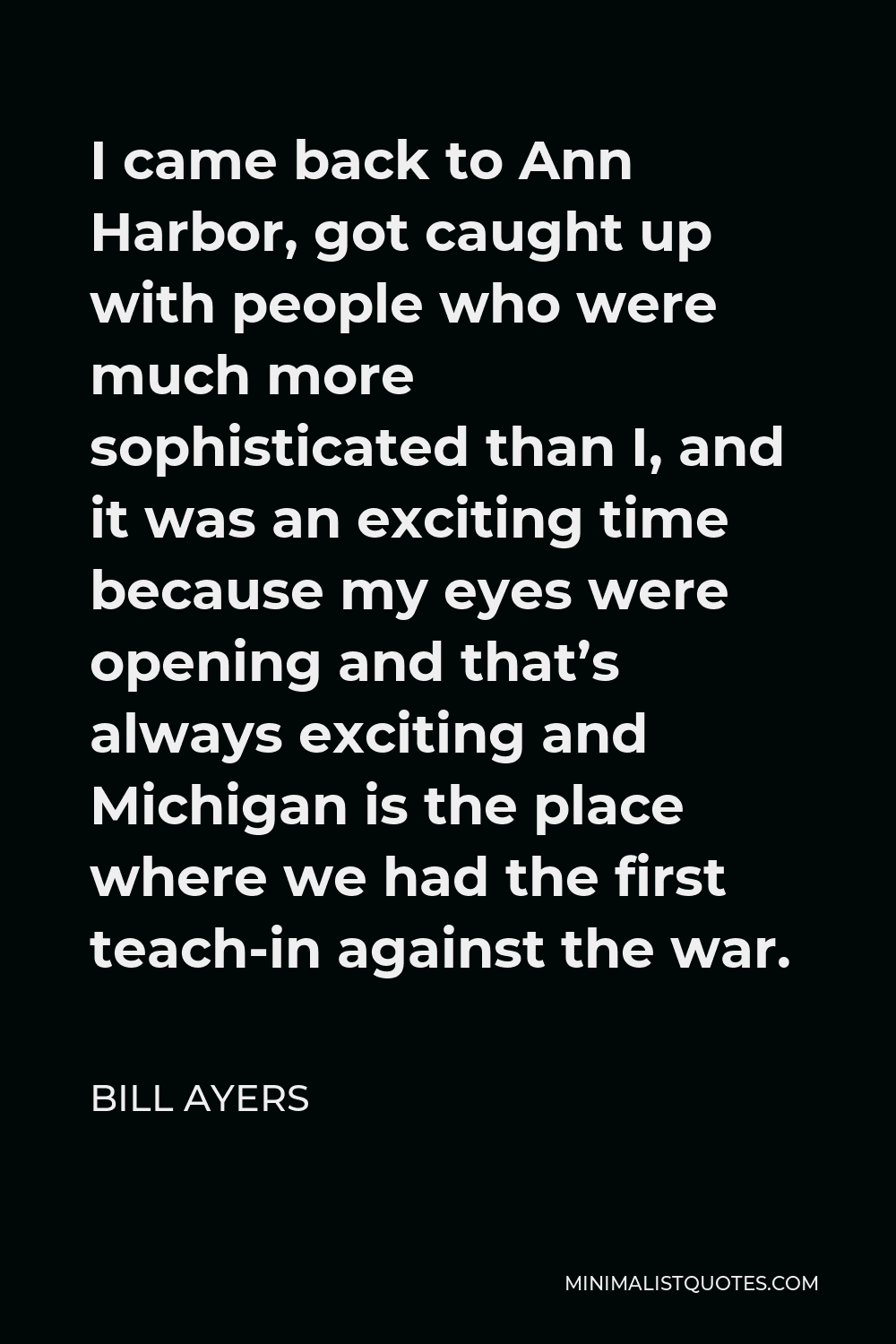
I came back to Ann Harbor, got caught up with people who were much more sophisticated than I, and it was an exciting time because my eyes were opening and that’s always exciting and Michigan is the place where we had the first teach-in against the war.
BILL AYERS -





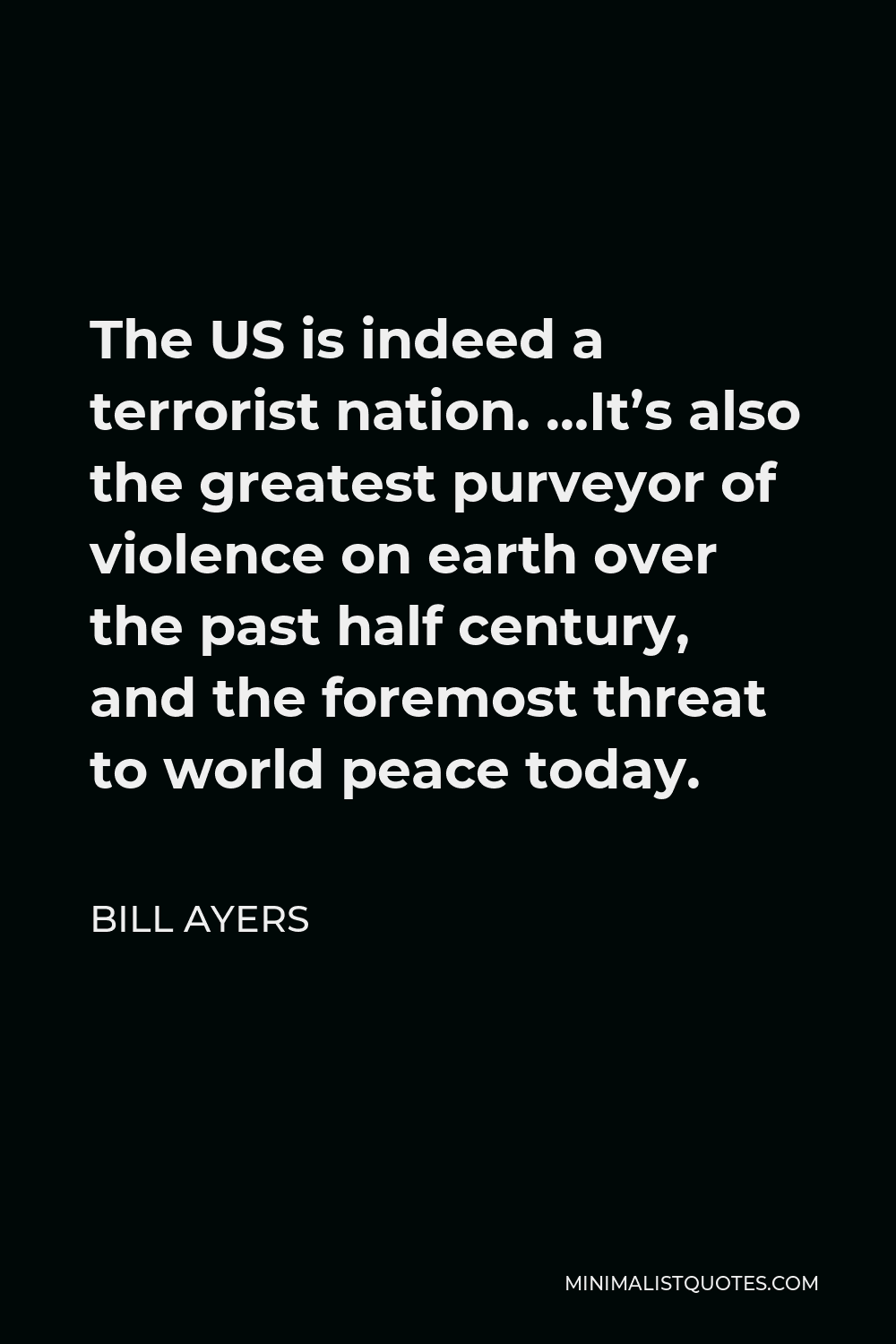
The US is indeed a terrorist nation. …It’s also the greatest purveyor of violence on earth over the past half century, and the foremost threat to world peace today.
BILL AYERS -





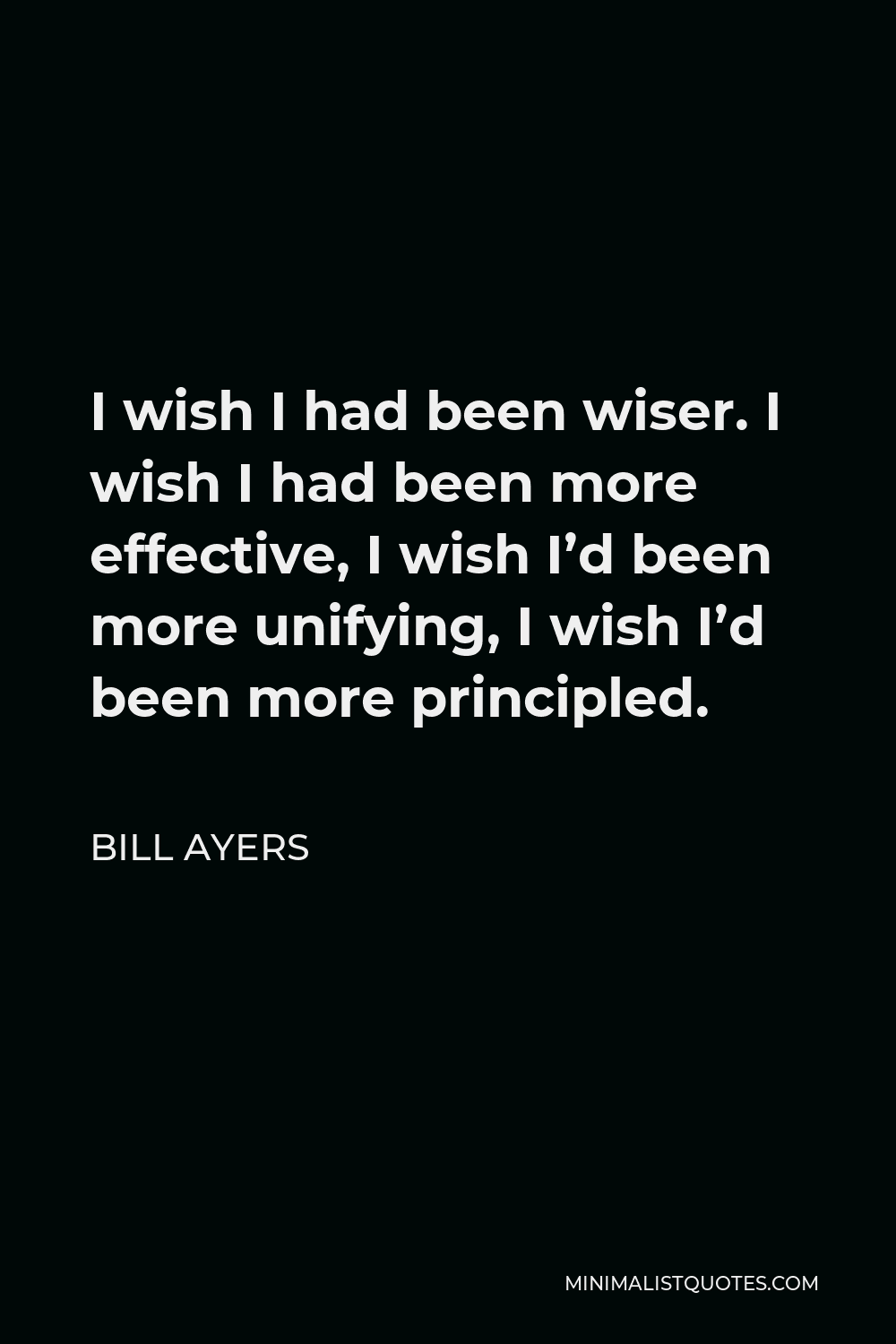
I wish I had been wiser. I wish I had been more effective, I wish I’d been more unifying, I wish I’d been more principled.
BILL AYERS -






I taught. I lectured at universities. I spoke to my students. I spoke in certain public forums. But what I didn’t do was respond to microphones being thrust in my face and saying, what is your relationship with Obama and are you an unrepentant terrorist?
BILL AYERS -





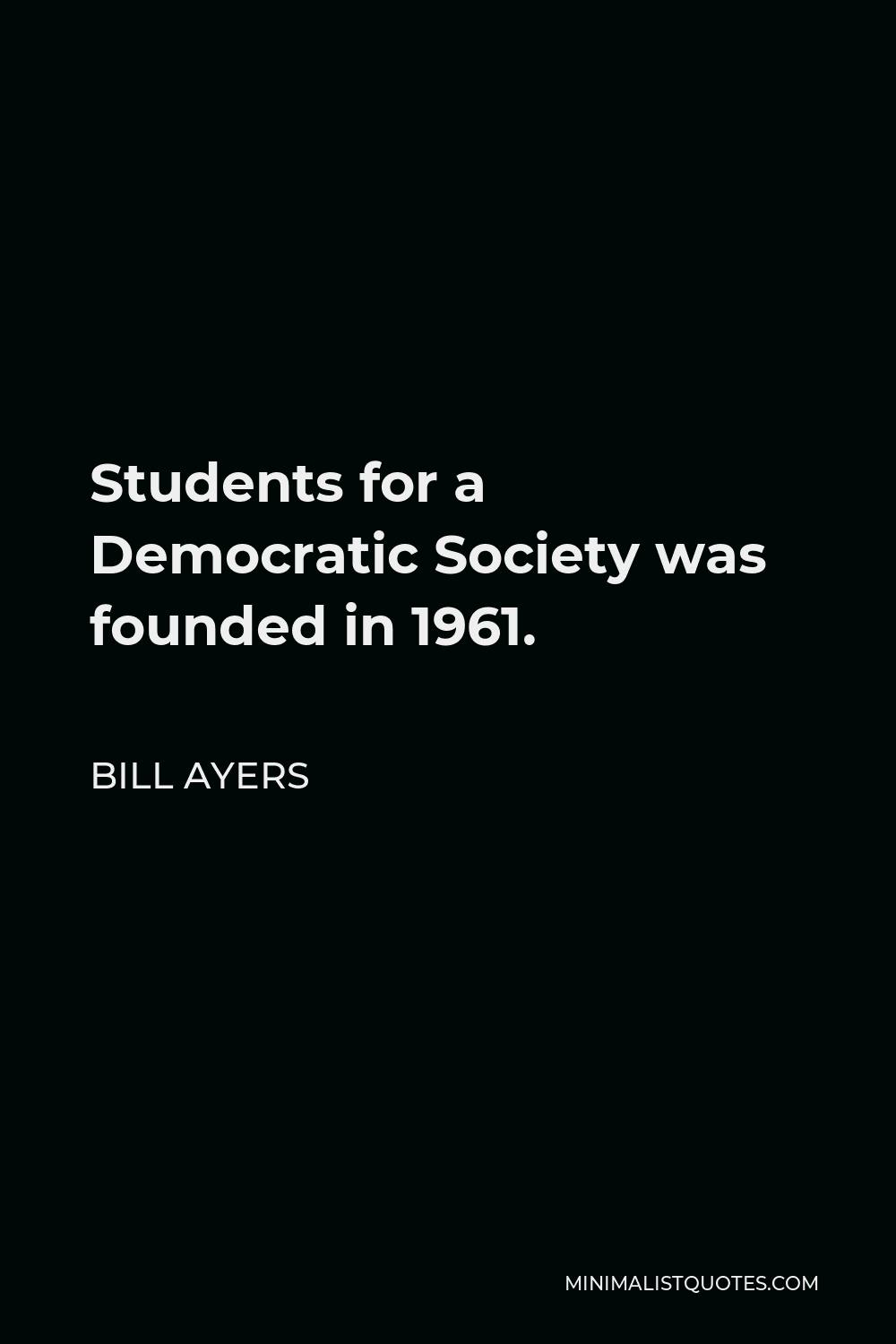
Students for a Democratic Society was founded in 1961.
BILL AYERS -





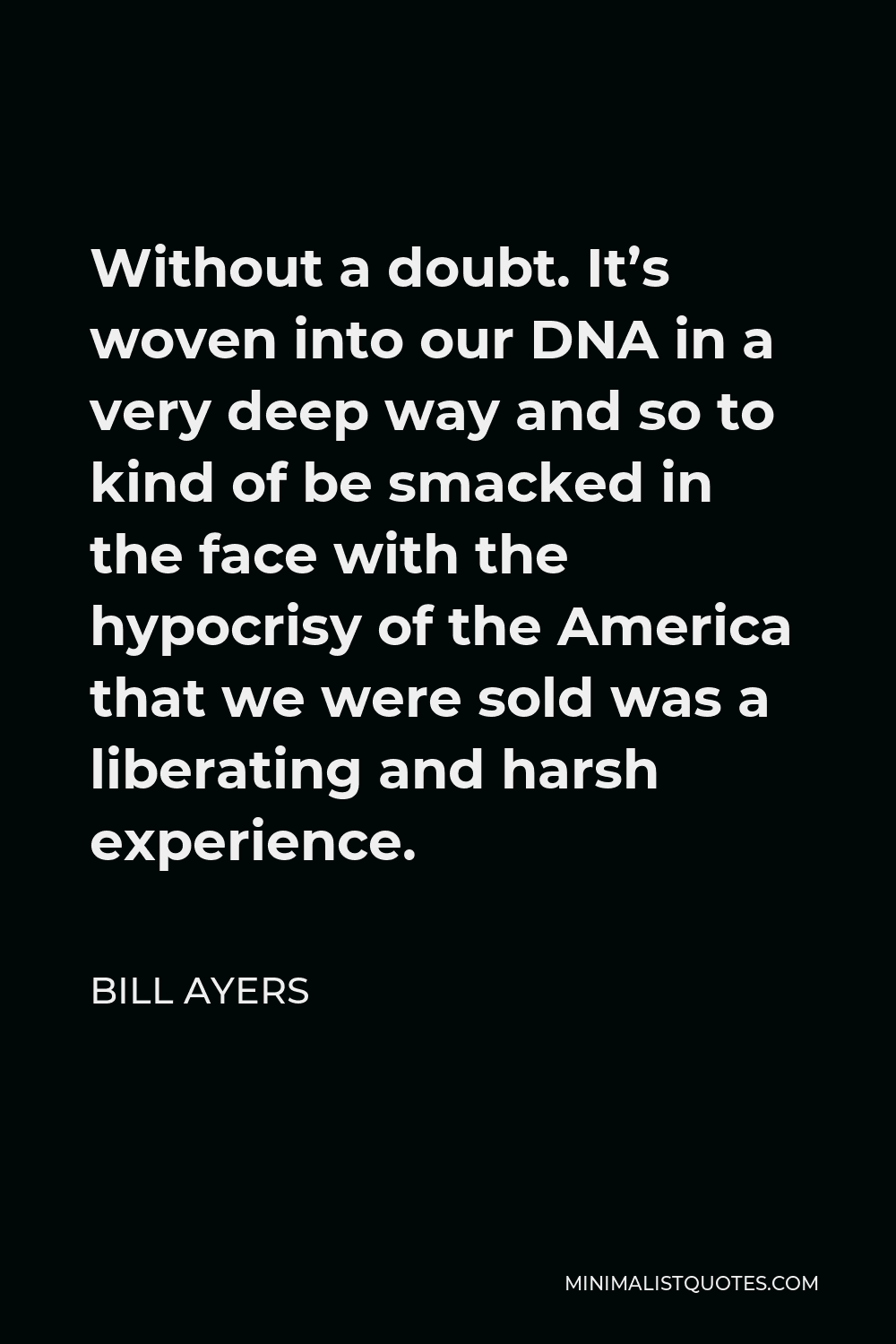
Without a doubt. It’s woven into our DNA in a very deep way and so to kind of be smacked in the face with the hypocrisy of the America that we were sold was a liberating and harsh experience.
BILL AYERS -





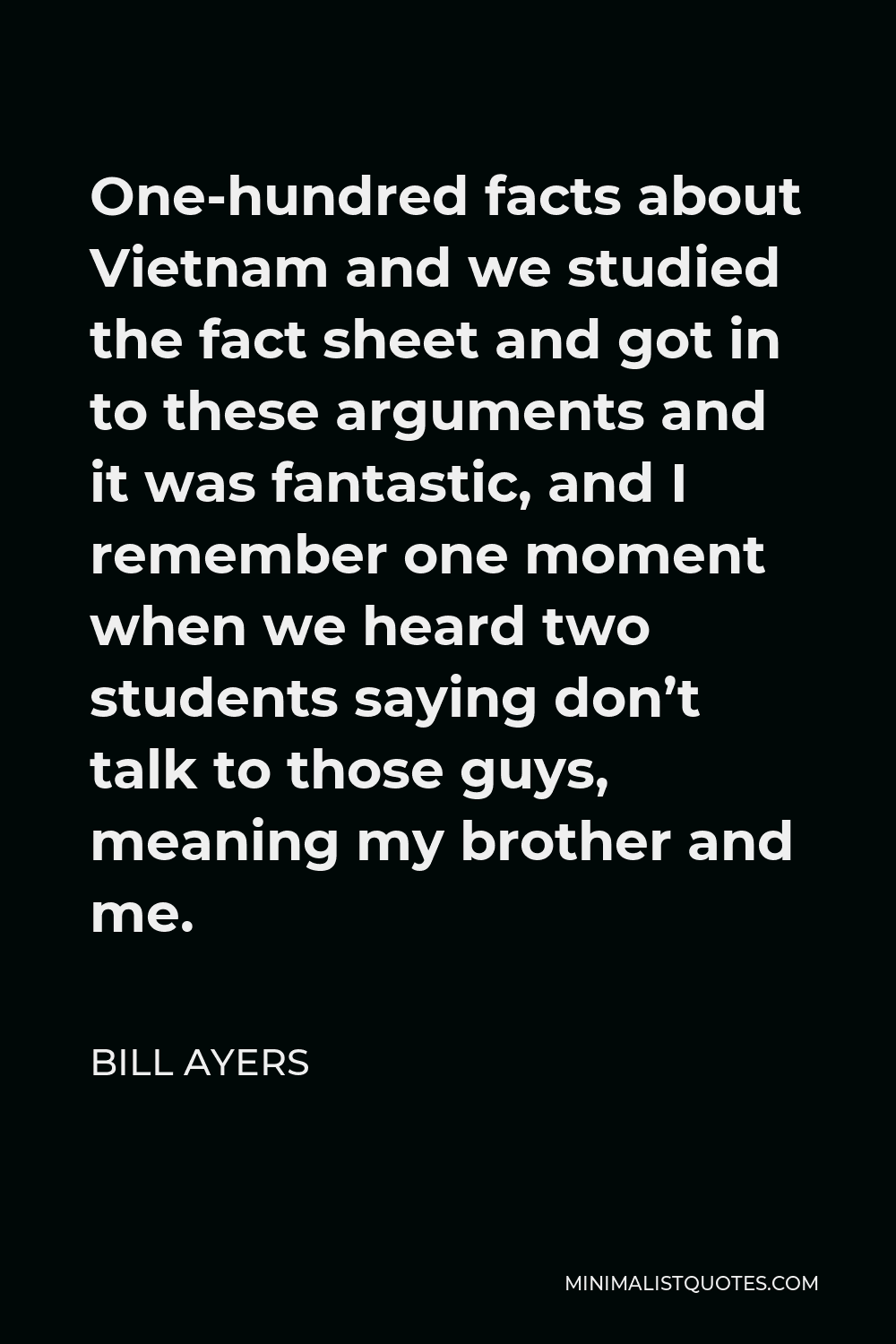
One-hundred facts about Vietnam and we studied the fact sheet and got in to these arguments and it was fantastic, and I remember one moment when we heard two students saying don’t talk to those guys, meaning my brother and me.
BILL AYERS
